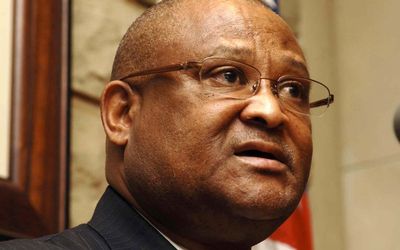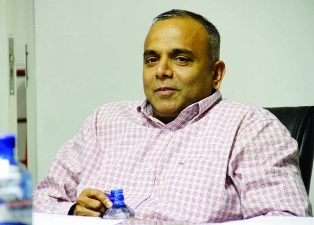
JOHANESBURG — Don’t blame the Kimberley Process (KP) if diamonds continue to fuel violent conflict and human rights abuses, chairman Welile Nhlapo from South Africa said last week.
Report by Sunday Times
The KP was started 10 years ago, with South Africa and the De Beers diamond group as the main movers.
The aim was to close down the trade in so-called conflict diamonds, diamonds traded to fund anti-government rebel groups in Africa wreaking havoc on civilians.
As far as Zimbabwe was concerned, “we have done everything in terms of due diligence and are satisfied that the diamonds can be marketed without any restrictions”, Nhlapo said.
He was clearly irritated with those who keep harping on about Zimbabwe.
“Zimbabwe is off the agenda of the Kimberley Process,” he kept insisting, sounding angrier each time. He rejected the accusation by Global Witness, among others, that the scheme was being browbeaten and manipulated by Zimbabwe.
But he weakened his case somewhat when he explained how the Kimberley Process had “convinced Zimbabwe to allow itself to be monitored”.
- Chamisa under fire over US$120K donation
- Mavhunga puts DeMbare into Chibuku quarterfinals
- Pension funds bet on Cabora Bassa oilfields
- Councils defy govt fire tender directive
Keep Reading
There are those who feel this is precisely what is wrong with the initiative. It allows itself to be held to ransom by its 84 member countries and a consensus-driven approach to its work.
In the case of Zimbabwe, it should have read President Robert Mugabe the riot act. Instead, it allowed the Zimbabwean autocrat and his henchmen to call the shots.
When the KP suspended trade in the Marange diamonds in 2009 pending investigations into the allegations of human rights abuses, the Mugabe government told it to go hang itself. It did not need the permission of the KP to trade what belonged to the Zimbabwean people, they said.
In 2011 the KP succumbed not only to Mugabe’s belligerence, but also to pressure by the President Jacob Zuma government, which in 2010 had urged that certification be granted to the Marange diamonds.
It was ironic that the man who gave Mugabe the nod, Umkhonto weSizwe veteran Abbey Chikane, was the initiative’s founding chairman, who at the time promised that it would free Africa “from corrupt individuals at a very high level”. “The Kimberley Process should be able to bring this development in Africa to an end,” Chikane announced boldly.
“We do what we can in terms of our mandate and do not entangle ourselves in political matters,” Nhlapo said. “We don’t want to get entangled in those.”
It is not only in Zimbabwe where the original idealism has succumbed to government pressure.When François Bozizé — friend of Zuma and former President Thabo Mbeki — grabbed power in a coup in the Central African Republic, the KP happily certified his country’s trade in diamonds in spite of his illegitimate leadership and the fact that most of the money went to Bozizé and his mates.
But it wasted no time withdrawing its certification when Bozizé himself was overthrown by rebel forces in January this year.
Nhlapo said it was the credibility of those who criticised the KP on human rights grounds that had been damaged by its doubtful record and not the credibility of the process itself.
“They know what has been done and they also understand our limitations,” he said.
“Let them be honest and not try and prolong their existence through lies.”










